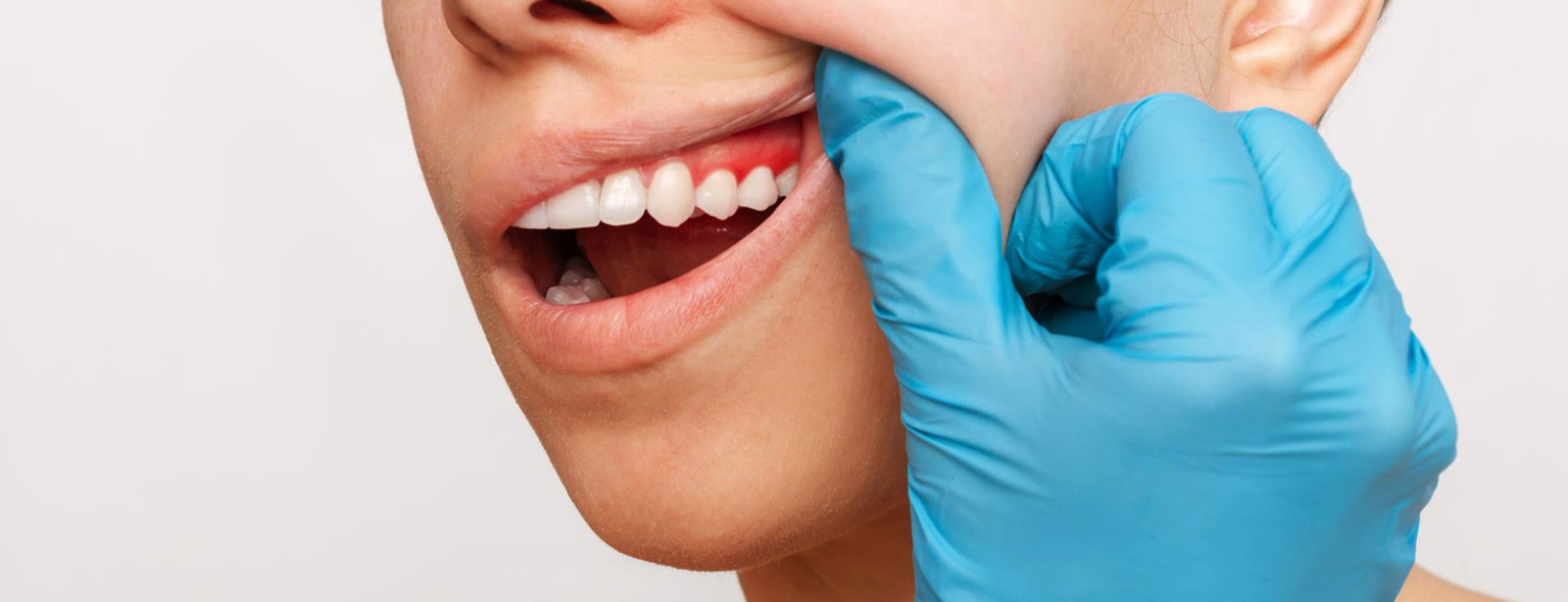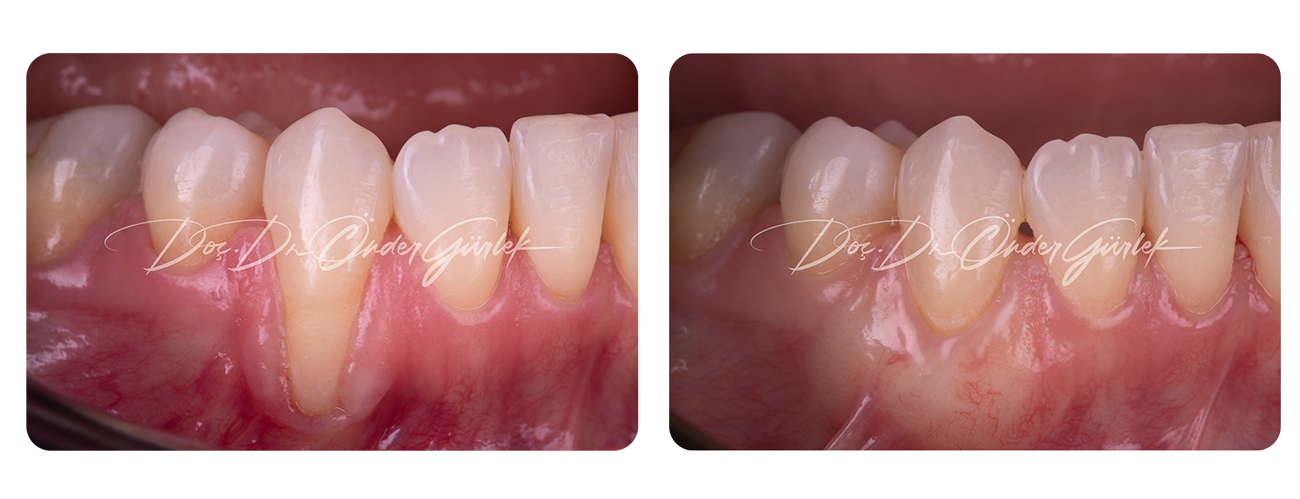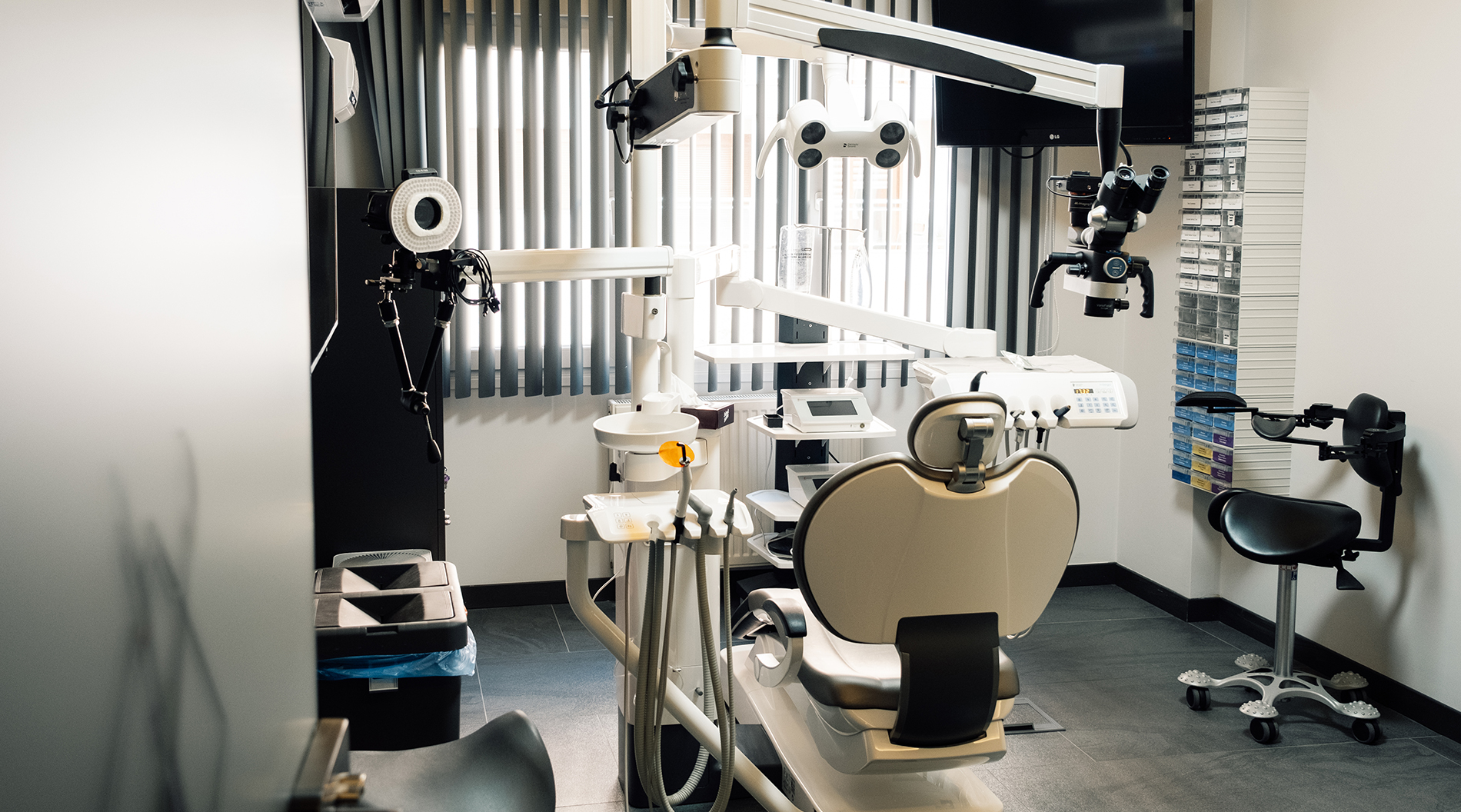
Periodontology is the branch of dentistry that deals with the diagnosis, treatment and prevention of gum diseases, conditions that affect the health of the supporting structures of the tooth (gums, periodontal ligament, alveolar bone). Gum diseases are among the important health problems that directly affect dental health and are usually not recognized in the early stages. However, when left untreated, they can have serious consequences that can lead to tooth loss. Periodontology plays a critical role in maintaining healthy gum structure and preventing the loss of teeth.
Periodontal Diseases
Periodontal diseases start with inflammation of the gums, usually due to bacterial infections. These diseases are divided into two main groups:
Gingivitis: Gingivitis is inflammation of the gums and is usually caused by the accumulation of dental plaque. At this stage, symptoms such as redness, swelling and bleeding of the gums are seen. If left untreated, gingivitis can progress and lead to more serious problems.
Periodontitis: Periodontitis, which develops with the progression of gingivitis, leads to the loss of the supporting tissues (bone and ligaments) of the gums and teeth. Symptoms of periodontitis include tooth mobility, gum recession and bad odor. In advanced stages, the risk of tooth loss increases.
Treatment Methods of Periodontology
Periodontology uses various methods to diagnose and treat gum disease. These methods vary according to the stage and severity of the disease:
Dental Cleaning (Professional Cleaning): Professional cleaning to remove dental plaque and tartar deposits is an important step in the prevention of periodontal disease. This procedure, performed by a dentist or hygienist, maintains the health of the teeth and gums.
Scaling and root planing: In advanced periodontal diseases, it may be necessary to clean the root surfaces of the teeth. While scaling removes plaque and tartar on the surface of the teeth, root scaling is performed to clean the roots of the teeth in depth. This process helps to eliminate harmful bacteria between the gums and the tooth.
Periodontal Surgery: Surgical intervention may be required in case of severe periodontal diseases. Periodontal surgery includes procedures such as repairing gum tissue, reshaping tooth roots and bone grafts. Surgical treatment aims to stop the progression of the disease and restore the health of the teeth.
Drug Treatment: Oral antibiotics or locally applied medications can be used to treat periodontal disease. These medications help to control infections and reduce gingivitis.
Gum Graft: In case of gum recession, gum grafting can be applied to reconstruct the gums. This procedure replaces lost gum tissue and helps to protect the teeth.
Periodontology and Oral Health
Periodontology can affect not only dental health but also general health. Research shows that periodontal disease can be associated with heart disease, diabetes, respiratory diseases and other health problems. Therefore, maintaining gum health is also extremely important for overall health.

